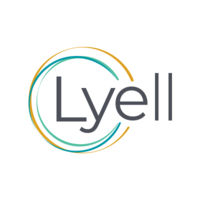Request Demo
Lyell Immunopharma Receives FDA Orphan Drug Designation for LYL845 for the Treatment of Melanoma
Orphan DrugCell TherapyGene TherapyImmunotherapy
Lyell Immunopharma, Inc. (Nasdaq: LYEL), a clinical‑stage T-cell reprogramming company advancing a diverse pipeline of cell therapies for patients with solid tumors, today announced that the U.S. Food and Drug Administration (FDA) granted Orphan Drug Designation to LYL845, an investigational tumor infiltrating lymphocyte (TIL) product candidate for the treatment of patients with stage IIB-IV melanoma.
“There remains a high unmet medical need for patients with advanced melanoma and we believe LYL845 has the potential for differentiated potency and durability needed to deliver better outcomes for patients with melanoma as well as other solid tumors where TIL therapy has not yet been widely effective,” said Lynn Seely, M.D., Lyell’s President and CEO. “We are pleased to have received Orphan Drug Designation for LYL845 in advanced melanoma and look forward to presenting initial clinical data from this program next year.”
LYL845, an autologous TIL product candidate enhanced with Lyell’s Epi-R™ manufacturing protocols, is currently being investigated in a Phase 1 clinical trial in patients with relapsed or refractory metastatic or locally advanced melanoma, non-small cell lung cancer (NSCLC), and colorectal cancer (CRC). In nonclinical studies, LYL845 TIL expanded with Epi-R exhibit characteristics that have previously been associated with improved clinical response rate, including a higher percentage of cytotoxic T cells and stemness phenotypes. LYL845 TIL have also demonstrated enhanced T-cell potency and maintenance of tumor-reactive polyclonality in nonclinical experiments. Initial data from Lyell’s ongoing Phase 1 clinical trial are expected in 2024.
The FDA's Orphan Drug Designation program provides orphan status to drugs or biologics intended for the prevention, diagnosis, or treatment of diseases that affect fewer than 200,000 people in the United States. Sponsors of medicines that are granted Orphan Drug Designation are entitled to certain incentives, including tax credits for qualified clinical trials, prescription drug user-fee exemptions, and potential seven-year marketing exclusivity upon FDA approval.
Phase 1 Trial Design (NCT05573035)
The Phase 1 clinical trial is an open-label, dose-escalation trial for patients with relapsed and/or refractory metastatic or locally advanced melanoma with expansion cohorts for patients with melanoma, NSCLC, and CRC. The primary objective of the trial is to determine safety, tolerability and a recommended phase 2 dose range of LYL845. The secondary objective is to determine antitumor activity as evaluated by response rates, duration of response, progression-free survival and overall survival. Exploratory biomarkers of T-cell stemness will also be assessed.
About Melanoma
Melanoma of the skin is among the most common cancers in the United States. It is one of the most common cancers in young adults and especially in young women. It is estimated there are over 100,000 new cases of melanoma diagnosed in the United States per year. Melanoma arises due to genetic mutations in melanocytes, the pigment producing cells, which can be found in the skin, eye, inner ear and leptomeninges, and represents the most aggressive and the deadliest form of skin cancer. Although melanoma accounts for only ~1% of all dermatologic cancers, it is responsible for ~80% of deaths from skin cancer, with only ~14% of patients with advanced melanoma surviving for five years.
About LYL845
LYL845 is an investigational autologous TIL product enhanced with Epi-R manufacturing protocols for patients with relapsed and/or refractory metastatic or locally advanced melanoma, NSCLC and CRC. In nonclinical studies, Epi-R creates polyclonal populations of T cells that demonstrate properties of durable stemness and anti-tumor functionality. Durable stemness is the ability of T cells to persist and self-renew to drive durable tumor cytotoxicity.
TIL products are created by expanding T cells taken from the patient’s own tumor. Previous clinical experiences suggest that the efficacy of adoptive transfer of ex vivo expanded TILs is largely driven by specific recognition of mutated tumor neoantigens specific to each patient. To date, broad efficacy of TIL therapies has been limited by variable and often poor product quality, lack of stemness or potential durability of expanded TILs, failure to maintain polyclonality of TILs during production, and failure to enrich the TIL product with tumor-reactive T cells. TIL products manufactured using Lyell’s Epi-R manufacturing protocol aim to overcome these challenges. Nonclinical studies supporting the development of LYL845 suggest Epi-R technology improves TIL products by maintaining properties of durable stemness, which leads to superior ex vivo cell expansion and product qualities, maintenance of tumor reactive clones, and enhanced polyclonality.
About Lyell
Lyell is a clinical-stage T-cell reprogramming company advancing a diverse pipeline of cell therapies for patients with solid tumors. Lyell is currently enrolling a Phase 1 clinical trial evaluating a ROR1-targeted CAR T-cell therapy in patients with relapsed refractory triple-negative breast cancer and non-small cell lung cancer (NSCLC) and a second Phase 1 clinical trial evaluating reprogrammed tumor infiltrating lymphocytes (TIL) in patients with advanced melanoma, NSCLC and colorectal cancer. The technologies powering its product candidates are designed to address barriers that limit consistent and long-lasting responses to cell therapy for solid tumors: T-cell exhaustion and lack of durable stemness, which includes the ability to persist and self-renew to drive durable tumor cytotoxicity. Lyell is applying its proprietary ex vivo genetic and epigenetic reprogramming technologies to address these barriers in order to develop new medicines with improved durable clinical outcomes. Lyell is based in South San Francisco, California with facilities in Seattle and Bothell, Washington. To learn more, please visit www.lyell.com.
The content above comes from the network. if any infringement, please contact us to modify.
Organizations
Indications
Targets
Drugs
AI Agents Built for Biopharma Breakthroughs
Accelerate discovery. Empower decisions. Transform outcomes.
Hot reports
Get started for free today!
Accelerate Strategic R&D decision making with Synapse, PatSnap’s AI-powered Connected Innovation Intelligence Platform Built for Life Sciences Professionals.
Start your data trial now!
Synapse data is also accessible to external entities via APIs or data packages. Empower better decisions with the latest in pharmaceutical intelligence.



